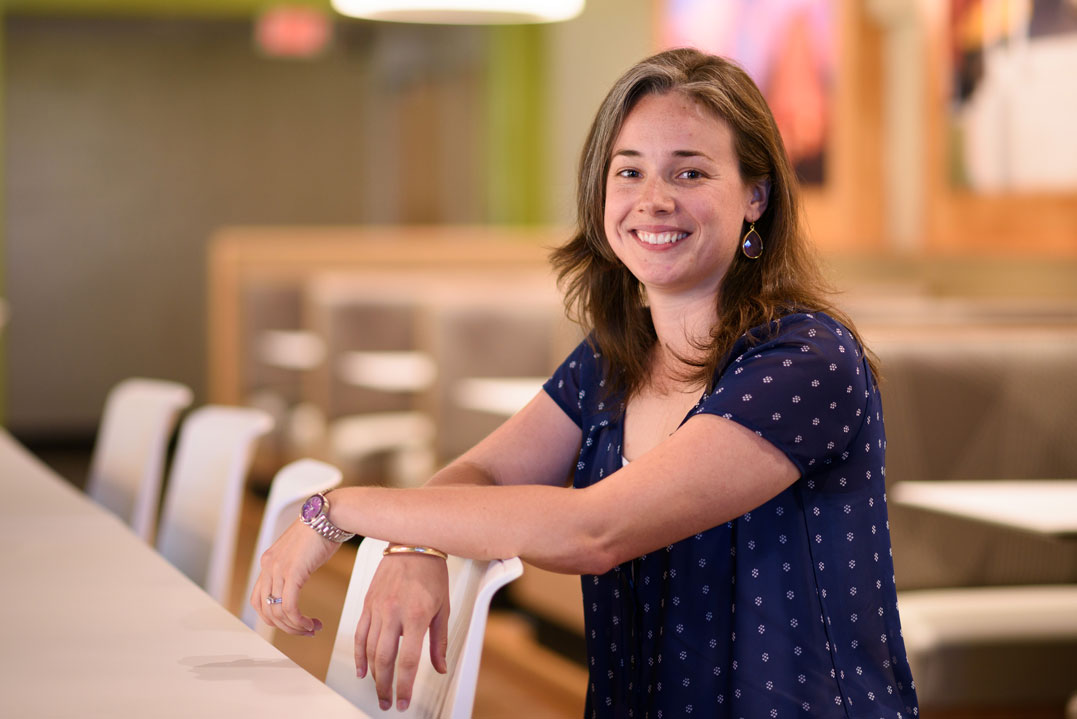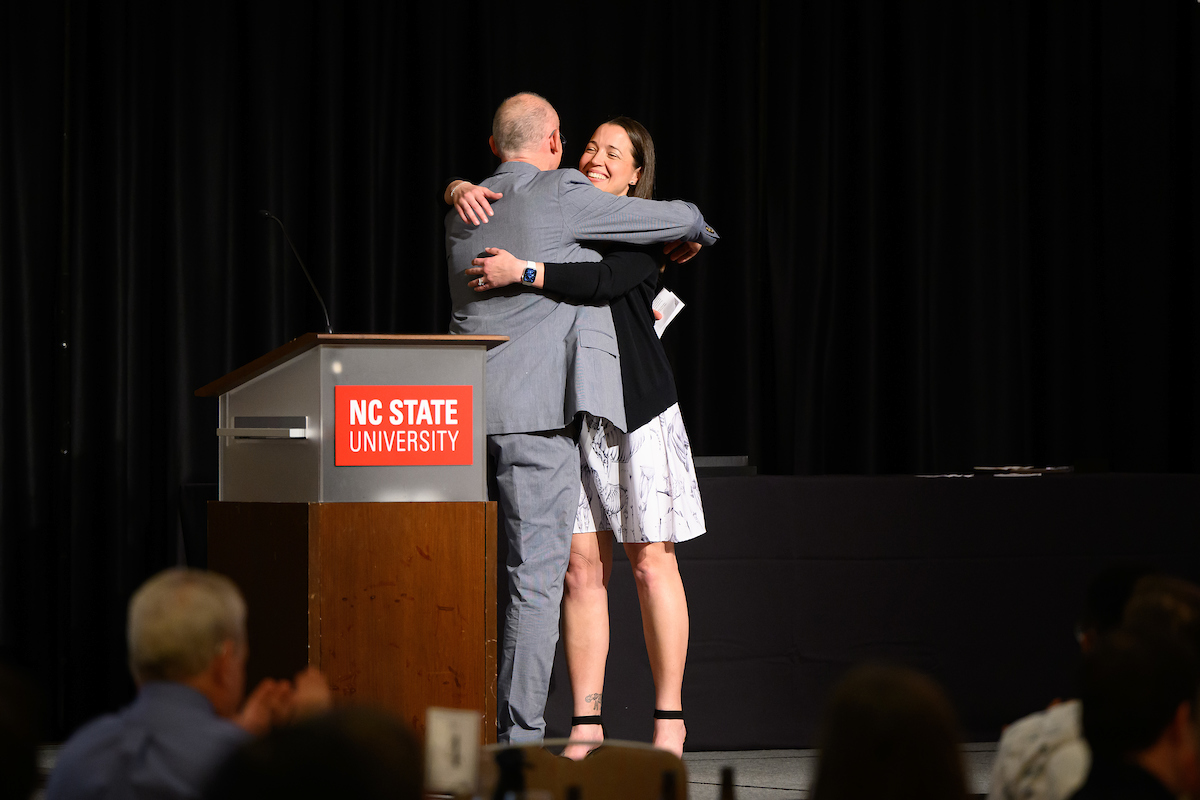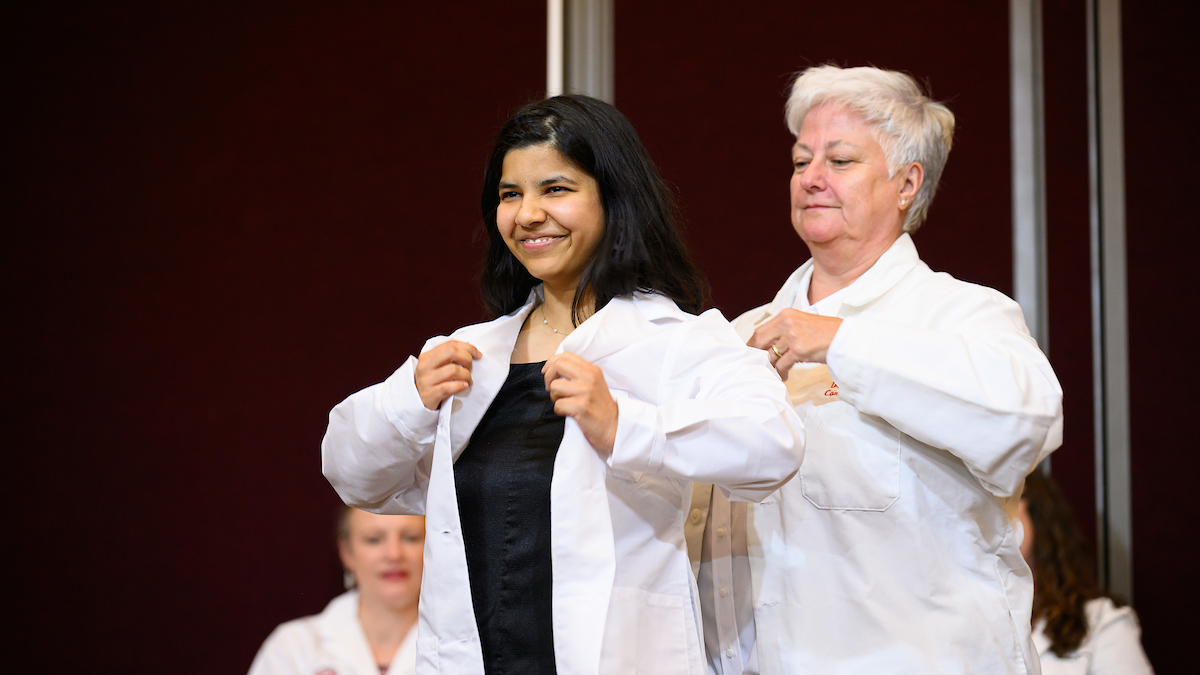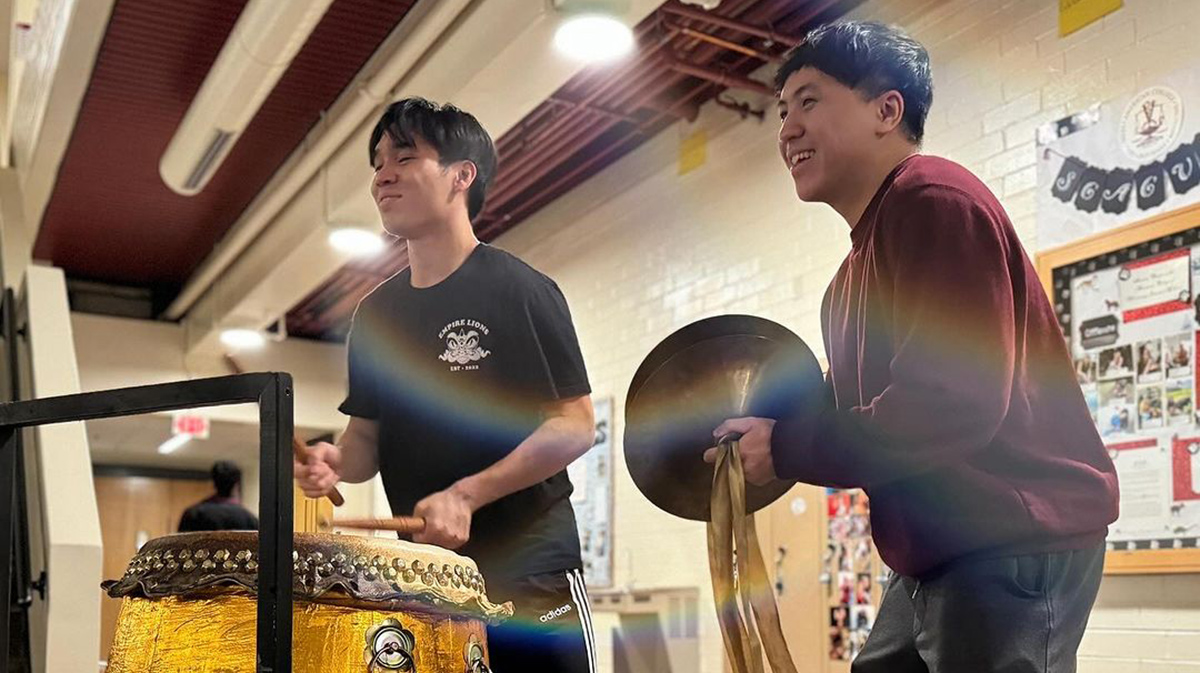Class of 2021: Finding the Right Path

As a budding scientist, Emily Gidcumb’s resume was the type employers drool over.
A bachelor’s degree in physics was immediately followed by a Ph.D. in materials science, both at UNC-Chapel Hill. There’s also the two undergraduate research assistant experiences, then the four years spent as a graduate research assistant working to improve digital breast tomosynthesis, an advanced type of mammography with a better ability to detect cancer. As a postdoctoral scholar, she worked on a breast imaging clinical trial.
This was someone who seemed to know exactly what she wanted to do — and how to get there.
It was the opposite.
“I had always been going to school, picking something I was interested in, and I never quite found something I loved,” said Gidcumb. “I was always a hard worker and relatively intelligent, so I was able to push my way through even though I wasn’t in love with what I was doing.”
Then she found the birds. During graduate school, she found several injured birds on campus, three times within a few months. The stunned birds had apparently run into the large glass walkways on campus. Something made her stop and help.
After bringing them to a local wildlife rehabilitation center, Gidcumb starting volunteering there. Then she started dog sitting for friends. Not for the extra money — just because she liked it.
“They just made me happy,” she said. “I was like, man, being around animals makes me way happier than being in a lab. And then I just had this crazy idea of what would it take to become a veterinarian? What does it take?”
Gidcumb had some time to investigate and really think about it. Her Ph.D. adviser agreed to let her stay on as a postdoc. He told her to use the time to work for him, but also gave her some space to think about what she really wanted to do. Half of her postdoc time was spent taking the first couple of vet school prerequisites at NC State. Know for sure what you should do, he told her.
At the end of the first postdoc semester, she was sure.
“I thought about everything I had been trained to do versus the idea of working with animals,” Gidcumb said. “Everything I knew and I was good at didn’t excite me anywhere as close as this idea of going to veterinary school and changing directions completely.”
A New Beginning
It hard to miss self-assuredness on a face. When you first see it shine, you hardly ever see it fade.
Just before her first day as part of NC State College of Veterinary Medicine’s Class of 2021, Gidcumb was cool and collected, with the type of calm that makes others instantly relax.
“I think it’s unique in that I can actually treat animals and still be a scientist at the same time.” It’s not that she thinks vet school is going to be easy. She has spent more than a decade nonstop with advanced classes and dissertations and research projects, and she knows she’s in for four more challenging years.
Gidcumb’s calm? That comes from still being a scientist and now knowing exactly what kind of scientist she wants to be.
“I look at veterinary medicine as I’ve finally found my field and my application,” she said. “And I think it’s unique in that I can actually treat animals and still be a scientist at the same time.”
Gidcumb, a Durham native, was in the midst of two years of prerequisite courses in 2015 when she attended a CVM Open House. There, she found Kate Meurs, the CVM’s associate dean for research and graduate studies, and got a lot of positive feedback from her and other professors about doing research at the CVM. They told Gidcumb about both the quantity and quality of research being done. They told her that she would fit in well.
Those conversations, she said, were a big boost in the middle of her two-year prep process for the CVM.
“Talking to them was so exciting,” she said. “The research opportunities were so clear. It kept my momentum going.”
But it’s not just research that appeals to Gidcumb. While taking the prerequisites, she found a mix of hands-on clinical veterinary experiences. For two years she was a veterinary assistant at Triangle Veterinary Referral Hospitals, a 24-7 emergency facility where she was able to observe surgeons, cardiologists, internal medicine specialists and more.
She then spent a year as a volunteer-turned-vet tech at 3H Equine Hospital in New Hill.
“It was a trial by fire. I had no vet experience,” Gidcumb said. “I literally walked into clinics and said, ‘Who can I talk to about what I can do?’ I went from publishing papers to mopping floors. But everybody has to put in their time in veterinary medicine. They don’t care where you come from. You have to prove yourself.”
“The more I’ve gotten experience in the field the more I desire to go into the connection of where human and animal medicine can help each other” Gidcumb quickly did, especially at 3H, where she spent 12-hour days partnered with a mobile vet in a truck going from farm to farm and barn to barn. The vet she was partnered with did a bit of everything. That included removing diseased eyes from horses.
She helped her with one of those cases, within just a month of starting out. She held a horse’s head as its optic nerve was cut. The horse jerked, the eyeball went flying and it hit the veterinarian. Gidcumb had never been a part of anything like that.
“Surprisingly, none of this fazed me,” she said. “I went from a job where I sat at a computer all day to one where something like that could be a typical day and it didn’t bother me. I think it’s because I knew I was supposed to be there. It was what I wanted to do.”
Continuing her research is some way while at the CVM is also a priority. Radiology is still an interest — “It’s the key to everything,” she said — but her veterinary experiences so far has led to an interest in internal medicine.
She wants something she can dive deep into but that can also have a wide impact.
“The more I’ve gotten experience in the field the more I desire to go into the connection of where human and animal medicine can help each other,” she said. “But I think contributing to academia and the body of knowledge in some way is what I want.”
“I’m not just coming to learn, but to also contribute to discovery and clinical science and treatment. That is one of my biggest goals.”
Following the class of 2021:
Our look at Emily Gidcumb is the sixth in a series of seven profiles showcasing the diverse, passionate and accomplished minds of the NC State College of Veterinary Medicine Class of 2021.
Head to the CVM news site over the next few months to read more profiles.
~Jordan Bartel/NC State Veterinary Medicine
- Categories:


